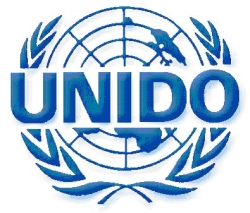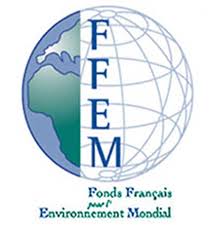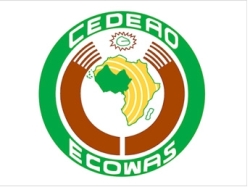Africa
12- United Nations Environment Programme (UNEP)
 We performed for UNEP a mid-term review of the GEF-and UN Foundation-funded Seed Capital Assistance Facility (SCAF). SCAF was designed by UNEP and is co-implemented by UNEP and the Asian Development Bank, with participation of the African Development Bank and Frankfurt School of Finance and Management (http://scaf-energy.org/about/introduction.html).
We performed for UNEP a mid-term review of the GEF-and UN Foundation-funded Seed Capital Assistance Facility (SCAF). SCAF was designed by UNEP and is co-implemented by UNEP and the Asian Development Bank, with participation of the African Development Bank and Frankfurt School of Finance and Management (http://scaf-energy.org/about/introduction.html).
The facility is aimed at helping early stage clean energy enterprises and projects in Africa and Asia access start-up seed capital from commercial energy investors. It is currently implemented through six clean energy investment funds: Evolution One, DI Frontier and Lereko Metier (Africa), Aloe, Armstrong and Berkeley (Asia).
The review concluded that despite delays in operationalizing the facility (a key negative factor was the financial crisis that hit the broader investment industry starting in 2008, impacting SCAF via the difficulty for funds to raise capital as quickly and as much as expected) SCAF is now delivering results. The 6 cooperating funds are increasingly convincing their investors to back early stage investment strategies; are developing pipelines of early stage projects and providing seed financing to the best of them with a good probability that most will reach full financial close. SCAF compares well to similar public finance mechanisms in particular in avoiding the risk of donors ‘picking winners’. Sustainability remains a question mark, as these early results will need to be confirmed, and amplified. Ultimately, sustainability will derive from the emergence of a robust and financially backed renewable energy project development industry in those countries. In the meantime, SCAF usefully contributes to accelerate this process (2012).
13- United Nations Environment Programme (UNEP)
 We are part of a team led by Frankurt School of Finance and Management that implements the National Climate Finance Institutions Support Programme (NCFISP) for UNEP.
We are part of a team led by Frankurt School of Finance and Management that implements the National Climate Finance Institutions Support Programme (NCFISP) for UNEP.
6
The National Climate Finance Institutions Support Programme (http://www.unep-fin.org/ncfisp/unep-ncfisp.html) is funded by the Ministry of Environment of Germany (BMU). Its aim is to provide institutional strengthening to national climate funds or institutions that aspire to become climate funds to access and best utilise climate finance, and to enable them to become "Fit for the Funds" through:
- sharing practical experience and building capacities and skills
- initiating joint research projects according to interests and needs
- preparation to effectively participate in the international climate finance architecture
We contributed to the NCFISP activities in the West African states of Benin and Ghana (2012-2013).
17- Fonds français pour l’environnement mondial (FFEM, or French GEF)
 With Forêt Ressources Management, a consulting firm specialised in sustainable management of forests, we conducted a feasibility study for the AFD project “Bank financing of sustainable forest management in the Congo River Basin”.
With Forêt Ressources Management, a consulting firm specialised in sustainable management of forests, we conducted a feasibility study for the AFD project “Bank financing of sustainable forest management in the Congo River Basin”.
This project aims to remove the barriers to bank financing of sustainable forest management operators. It will consist of an AFD credit line to local commercial banks to support investments in sustainable forest management and a 2.7M€ FFEM-funded Technical Assistance package (2012).
20 - Fonds français pour l’environnement mondial (FFEM, or French GEF)
 With Artelia (France), we designed a 3M€ Technical Assistance programme that will support an AFD credit line to local commercial banks targeting EERE projects in West Africa.
With Artelia (France), we designed a 3M€ Technical Assistance programme that will support an AFD credit line to local commercial banks targeting EERE projects in West Africa.
The substantial TA programme (€3M) will assist both project proponents (renewable energy developers and firms willing to undertake an EE programme) and beneficiary banks in developing and appraising EE and RE projects in the UEMOA (West African Franc CFA zone) region, with an initial focus on Burkina Faso, Côte d’Ivoire, Sénégal, and Togo (2013).
21- Economic Community of West African States (ECOWAS)
 The ECOWAS is a regional group of fifteen countries in Western Africa, founded in 1975. Its mission is to promote economic integration of its 15 member states.
The ECOWAS is a regional group of fifteen countries in Western Africa, founded in 1975. Its mission is to promote economic integration of its 15 member states.
For the implementation of a regional electricity market in West Africa, ECOWAS relies on a specialized agency, the Western Africa Power Pool (WAPP). The latter has planned an interconnector linking the Ivory Coast and Guinea through Sierra Leone and Liberia.
As part of a team led by French group Artelia/ Sogreah, we developed a business plan for the special purpose company (SPC) that will build, finance and operate the interconnector. Funding agencies include the World Bank, the African Development Bank, the EIB and KfW (2011).
 The Government of Kenya is at the forefront of developing countries in the fight against climate change. It adopted a comprehensive strategy in 2010. It is currently working with the financial support of CDKN (funded by DFID and the Netherlands Ministry of Foreign Affairs), to develop an action plan to implement this strategy.
The Government of Kenya is at the forefront of developing countries in the fight against climate change. It adopted a comprehensive strategy in 2010. It is currently working with the financial support of CDKN (funded by DFID and the Netherlands Ministry of Foreign Affairs), to develop an action plan to implement this strategy.
As part of a team led Vivid Economics and Adam Smith International from the UK, we designed the financial mechanism of the action plan, which will result in the establishment of a National Climate Fund. (2011-2012)
The Kenya Climate Change Action Plan was officially launched on 27th March 2013 (http://www.kccap.info)

